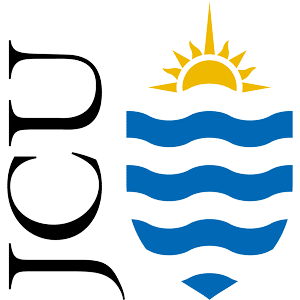Cutting-edge courses from Australia to develop high-value data scientist skills.

Overview
Build skills for a data-connected career with a Graduate Certificate in Data Science. The latest online courses from Australia prepare you for vital roles and are pathways to further study. Choose from applied and foundational courses, with options to continue for graduate diplomas and masters degrees.
The ability to extract insights and knowledge from large and complex datasets is valuable today. By studying data science, you'll gain skills to inform business decisions, improve operations, and drive innovation. With a relatively short course, you can establish the foundations for a lucrative career exploiting the power of big data.
Online Courses

A data science graduate certificate is a short course by university standards, consisting of four subjects from a master's program. These online courses from Australia give you different learning options, emphasising data science foundations, rapid applied learning, or a combination of approaches.
RMIT Online
The Graduate Certificate in Data Science from RMIT University is designed for people working in business roles where data has value. You'll learn the essentials of analytics, data wrangling, programming, and data visualisation. Not only will you improve your fluency in the language of data, but you'll gain insight into how to better manage data responsibilities and solve business problems. The accelerated online course can be completed in 8 months of part-time study. Graduates have the option to continue studying for a masters focused on strategy and leadership.
James Cook University
James Cook University's Graduate Certificate of Data Science is a convenient, affordable way to get started in this field. Each of the 4 subjects takes less than 2 months to complete and you have full control over when you study. An intuitive online platform allows you to easily connect with classmates and academic staff. Topics covered include an introduction to the data science discipline and fundamental concepts, statistical methods, visualising big data, and database systems.
UNSW Online
Delivered 100% online, the Graduate Certificate in Data Science at UNSW is a 4-subject pathway program for a masters degree. Core topics are programming principles, data science foundations, and statistical inference for data scientists. You can also choose to study database systems or strategic decision making. The course is open to graduates with a relevant degree and/or 2+ years' experience as a data analyst or scientist. Each subject takes just 7 weeks and can be done while you work full-time.
Is this Graduate Certificate Worth It?
If you have an interest in this field, there are few drawbacks and plenty of upside from studying for a Graduate Certificate in Data Science online. You'll gain a postgraduate university qualification in a growing employment area, with the option to continue studying for a graduate diploma or masters.
Graduate certificates are often worth it because of their compactness and high regard among recruiters. Although data science is an area with an uncertain future due to rapid technological change, this is mitigated with a shorter course of study. The opportunity to study part-time online also means students don't have to bear travel costs or take time off work.
The course provides an opportunity to build a foundational understanding of useful concepts and techniques, and to develop the skills needed to analyse and interpret data. These skills are in high demand across industries, making you more attractive to potential employers. Jobs for ICT Business and Systems Analysts, for example, are projected to grow by 12.7% to 58,100 by 2028. The average salary for a data scientist is currently estimated to be $112,500 based on job ad data.
Related: How to Become a Data Scientist in Australia
What You'll Learn (Course Structure)

As a foundations course, a grad cert in data science typically eases students into the discipline. Your instructors may outline data science methods, introduce programming, explore statistical and data visualisation techniques, and give students the opportunity to do applied projects.
Students learn core statistical concepts, focusing on data exploration, summarisation, and the principles of probability. This foundation supports skills in data interpretation and analytical decision-making.
Courses also cover data wrangling and visualisation. Students gain proficiency in cleaning and preparing data using programming tools like Python, alongside developing skills in communicating data insights through visual representation.
Related: Master of Data Science Online Courses
Career Opportunities

The job outlook for those interested in data analysis and science is extremely positive. Data scientists and analysts is often considered to be a top emerging occupation globally (WEF). The growth trend is driven in large part by the technology sector, where companies like the world's five largest technology firms alone employ a significant number of data scientists and engineers. The kinds of jobs available include these:
- Analytics manager
- Business data analyst
- Business intelligence analyst
- Business intelligence manager
- Business manager
- Data analyst
- Data engineer
- Data governance analyst
- Data governance manager
- Data manager
- Data scientist
- Financial data analyst
- Healthcare data analyst
- IT manager
- Machine learning engineer
- Marketing data analyst
- Operations manager
- Supply chain data analyst
Entry Requirements
The admissions requirements vary by course. A bachelor degree with solid grades in a cognate (maths-heavy) discipline is generally a sufficient qualification. You may also be admitted based on relevant professional experience and/or evidence of academic ability in mathematics.
- To enroll at RMIT Online, students should understand basic statistics and have some coding knowledge. Academic requirements are either a bachelor degree (AQF 7) or equivalent, or at least 5 years full-time work experience in any industry.
- At James Cook University, the course is open to students who have a bachelor degree plus high-school intermediate-level mathematics (basic algebra and differential calculus); or 5 years of relevant work experience (with high numeracy skills).
- To be eligible at UNSW, you must have a bachelor degree in Data Science or a related field (like Computer Science, Economics, Mathematics, Statistics); or a non-cognate degree with a 65+ average in advanced Mathematics, Statistics, Computer Science, or Econometrics courses; or a non-cognate degree with 2+ years' experience in data science or analytics.
Graduate Certificate in Data Analytics
A Graduate Certificate in Data Analytics may be more suitable if you want to do less coding and be more involved in the decision-influencing side of data work.
Data analysts spend limited time on data mining and other coding-intensive tasks, instead producing statistics for data-driven decision making. At the extremity are business analysts and business intelligence analysts. They pragmatically use well-structured data for tasks such as solving business problems and reporting market trends.
Graduate Diploma in Data Science

A Graduate Diploma in Data Science is a popular extension of the grad cert course that provides advanced training in key areas. This is a demanding profession in terms of the skillset required and a grad dip may offer you the right balance. You gain a strong skills foundation for a career as a data scientist while still leaving room for professional development in your own way after graduating.
UNSW Online
The Graduate Diploma in Data Science from UNSW Online is an 8-subject course consisting of 5 core subjects and your choice of 3 electives. Core topics are programming principles, data science foundations, statistical inference for data scientists, data mining and machine learning, and regression analysis for data scientists. The 3 electives can be chosen from a suite of 9 contained in the data science masters program. Using UNSW Online's fast-tracked model, you can graduate with your customised graduate diploma in as little as 16 months of part-time study.
FAQs
This type of course can be suitable for "beginners". But it depends on the specific program and your background, strengths and weaknesses. Graduate certificates can be either foundational or advanced.
Postgraduate courses in data science are often designed for those with a background in a related field such as statistics, computer science, or mathematics, and may assume some level of prior knowledge. However, other courses are more suitable for beginners, with less stringent prerequisites.
Some grad cert programs have a more theoretical focus, while others are more hands-on and provide opportunities to gain practical experience working with data. Some are more focused on the business side of the field, while others are more technical.
If you're a complete beginner and want to start learning, it's recommended to start with a beginner-level course that covers the basics of data science and programming. Once you have a solid understanding of the fundamentals, you can then consider a graduate certificate to gain a deeper understanding of the subject and learn more advanced techniques.
Yes, data science requires coding. It's a core component of the field, involving languages like Python, R, and SQL. Coding is essential for tasks such as data analysis, cleaning datasets, and building statistical models. These programming skills enable data scientists to manipulate and interpret data effectively, making them indispensable for the role.
Beyond coding, data science also heavily relies on mathematics and statistics. Understanding concepts in these areas is critical for developing and implementing algorithms, especially in machine learning and predictive analytics. These mathematical skills complement coding abilities, together forming the backbone of data science expertise.
For all of the courses listed, you'll be part of a virtual class. You'll have interactions with fellow program participants and instructors online, working to a collective weekly schedule.
Interaction with the learning community is crucial for a successful online study experience. Connecting with classmates, instructors, and university support staff will not only enhance your understanding of the material, but also help you develop skills that go beyond the course content.
By design, you will, however, be able to study flexibly at your own pace and on your own schedule. Students can access course materials and complete assignments at any time, rather than having to be online at a specific time for live virtual classes. You'll also be able to access lectures, readings, and other course materials at any time, rather than having to wait for a live class to view them.
The courses are also accelerated, meaning you study across the year in 6-8 week study blocks. Part-time online students complete a subject from start to finish every couple of months. Assessment relies of quizzes and assignments and generally there are no final exams.
Data science is harder than cyber security, with more challenging mathematical and programming requirements. Core subjects in data science often involve advanced topics like linear algebra, statistical methods, and machine learning algorithms. These areas require a deep understanding of complex mathematical concepts and proficiency in programming languages such as Python and R. The intricacy of data wrangling, which involves cleaning and organising large datasets, adds another layer of difficulty.
Studying for an undergraduate or advanced degree in cyber security isn’t hard, especially compared to other technical fields. Programmes in data science and business analytics are potentially more technical and require skills in complex topics like linear mathematics and algebra. Cyber security has its challenges, but it gets easier with the right resources and a learning attitude. - Andrew Lancaster
While cyber security is also technical, its challenges are different. It focuses more on understanding and mitigating risks associated with information security, network systems, and data protection. Cyber security professionals need to be well-versed in network architectures, encryption technologies, and various security protocols. However, the level of mathematical and programming intensity is milder.



